I recently read an article in the Philadelphia Inquirer about Apollo, a stray dog shot in 2017 and rescued by PAWS of Kurdistan International, a nonprofit animal rescue based in Iraq. Because I am a lifelong animal lover, and my current work-in-progress includes a subplot revolving around a no-kill shelter for cats, I knew I wanted to learn more.
Life in a War Zone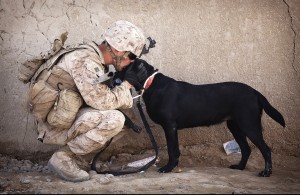
Life is difficult enough for animals living on the streets in the United States. What happens to abandoned and stray animals living in war zones?
Some of these animals befriend members of the U.S. military. The humans provide food and perhaps shelter, while the animals offer companionship to soldiers who are far away from the people and places they love.
But life in the military is life on the move. When soldiers return home, they often must leave behind a beloved dog or cat.
The soldiers who rescued Charlie could not bear to leave the lovable black and white mutt behind. They had found him when he was only a puppy, and the young dog soon became an integral part of their unit. They reached out to the American Society for the Prevention of Cruelty to Animals International (ASPCAI). As a result of their efforts, Operation Baghdad Pups was born, and Charlie became the first Baghdad Pup.
As Charlie’s story spread, more soldiers reached out to the ASPCAI for help bringing their special animals home with them. Since its founding in 2008, Baghdad Pups has reunited 355 dogs, 109 cats, and even a donkey with the people who befriended them in Iraq.
This ASPCAI operation eventually expanded beyond Iraq, reuniting military personnel with companion animals from other Middle East countries, Central Europe, Southeast Asia, and Africa—anywhere American military men and women serve. With the help of numerous other organizations, Operation Baghdad Pups continues its work of reuniting military personnel with the animals they befriended while serving overseas. Since its expansion, Baghdad Pups has rescued 640 dogs and cats and hopes to rescue 140 animals by the end of 2018.
Apollo: A Very Special Pup
Apollo, a black mutt with soulful eyes—just look at that picture accompanying Jason Nark’s article!—was not the special friend of a U.S. soldier, but he was a suffering dog that came to the attention of Operation Baghdad Pups.
Apollo was shot in the leg with a 9mm round in Ankawa, a suburb of Erbil, in July 2017. “It’s a terrible, terrible injury for a dog,” said Meredith Ayan, the SPCAI’s executive director. Left behind to suffer by his attacker, Apollo was rescued by members of PAWS Kurdistan and transferred to the care of Operation Baghdad Pups. He arrived in the United States in April 2018.
Veterinarians from the United States and Europe will soon perform a complex surgical procedure to repair Apollo’s mangled leg and, they hope, restore him to a pain-free life. All the veterinarians are donating their services.
For now, Apollo enjoys running free in a beautiful wooded suburb of Philadelphia under the watchful eye of Valerie Ogden, his current caretaker. Ogden believed Apollo only understood commands in Kurdish, but his love of dog biscuits appears to transcend language. The goal, she says, is to get Apollo into a “forever home” after his surgery.
Support for Pets of Military Families
Sometimes the animals needing help live on military bases right here in the United States. They have loving families and comfortable homes. But, as with soldiers in war zones, the families of military personnel must be ready to move. When that happens, what do they do if they cannot afford the expense of relocating their beloved pets?
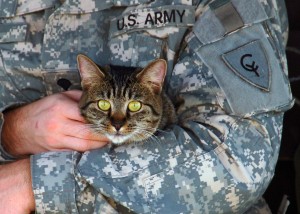 According to the American Society for the Prevention of Cruelty to Animals (ASPCA), approximately 6.5 million companion animals enter U.S. animal shelters nationwide every year. Of those, approximately 3.2 million are adopted, while approximately 1.5 million are euthanized because they cannot return to their families or no one adopts them into a new family.
According to the American Society for the Prevention of Cruelty to Animals (ASPCA), approximately 6.5 million companion animals enter U.S. animal shelters nationwide every year. Of those, approximately 3.2 million are adopted, while approximately 1.5 million are euthanized because they cannot return to their families or no one adopts them into a new family.
Some of these surrendered animals come from military families.
The military pays for many moving costs, but it doesn’t help military families relocate the family pet. The cost for pet transportation can be hundreds or even thousands of dollars. Shelters located near military bases report high surrender rates when military families can’t afford to relocate their dog or cat.
Once again, the SPCAI comes to the rescue with Operation Military Pets. Its mission is “to keep military families together by providing financial assistance for pet relocation costs. All branches of the military can qualify for grants. Whether being relocated within the United States or anywhere in the world, SPCAI’s Operation Military Pets is here to keep pets with the ones they love.”
The stories of the many military families helped by Operation Military Pets are enough to bring tears to this animal lover’s eyes.
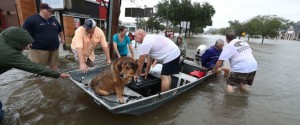

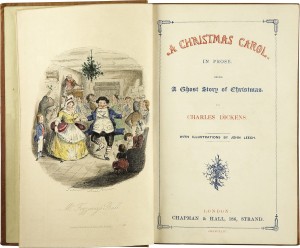
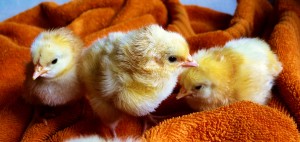 The girls take the work seriously. They are not simply rescuing animals and leaving their future welfare to chance. With the help of volunteers and community fund-raisers, they provide love and attention to every animal that Save a Soul takes in, and they ensure that every animal is spayed or neutered and receives any necessary medical treatment and proper immunizations. They have developed a rigorous interview process to screen the people who want to adopt their animals to ensure that every animal goes to a safe, loving forever home.
The girls take the work seriously. They are not simply rescuing animals and leaving their future welfare to chance. With the help of volunteers and community fund-raisers, they provide love and attention to every animal that Save a Soul takes in, and they ensure that every animal is spayed or neutered and receives any necessary medical treatment and proper immunizations. They have developed a rigorous interview process to screen the people who want to adopt their animals to ensure that every animal goes to a safe, loving forever home. Some people consider the plight of humans and the plight of animals an either/or proposition. You either care about the welfare of humanity OR you care about the welfare of animals. You cannot do both.
Some people consider the plight of humans and the plight of animals an either/or proposition. You either care about the welfare of humanity OR you care about the welfare of animals. You cannot do both.